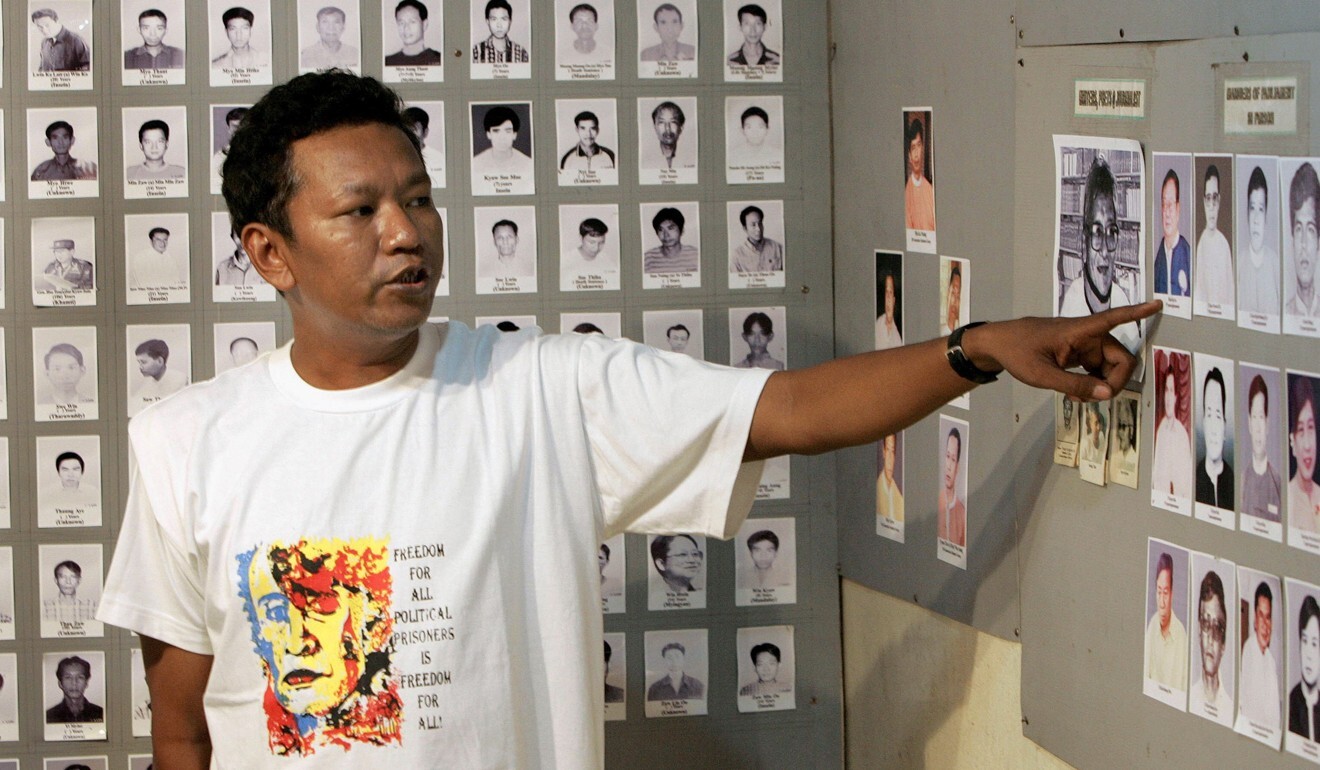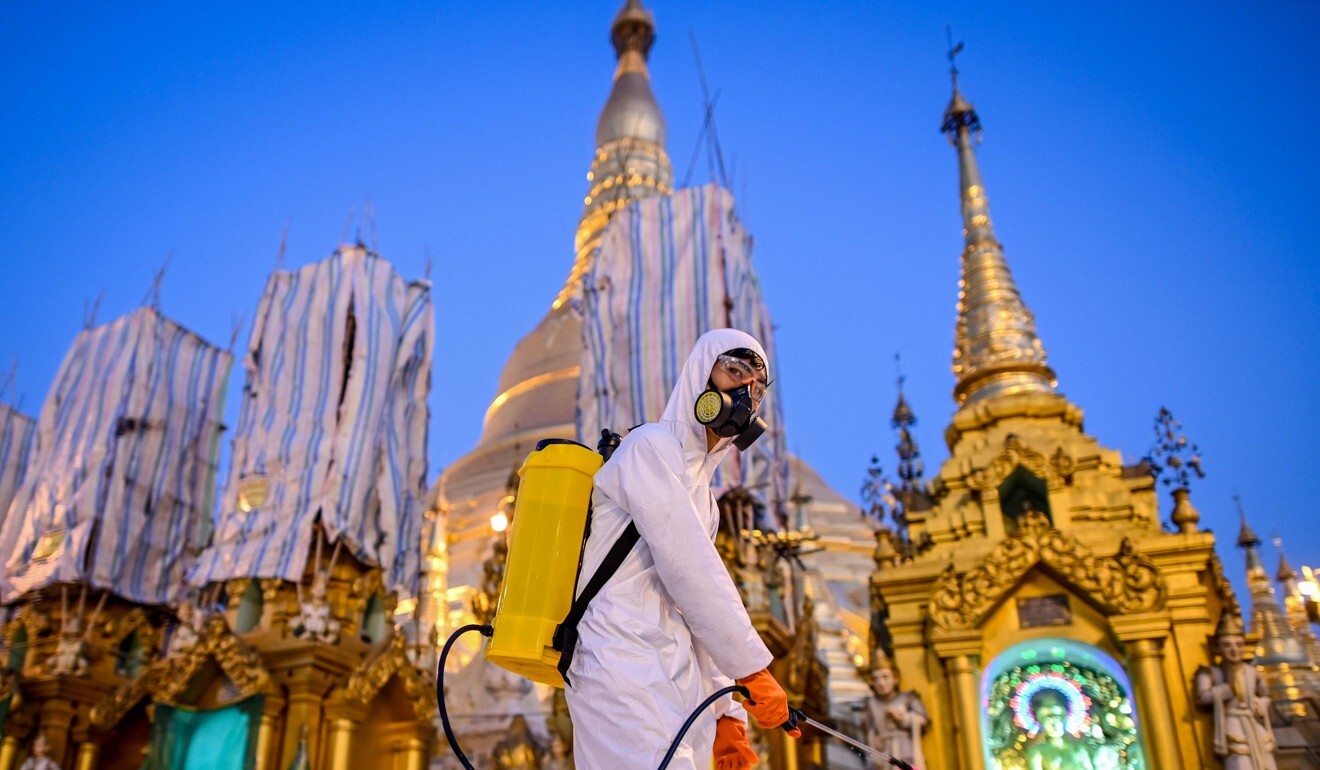
Coronavirus: Myanmar’s former political prisoners share isolation survival tips
- The country of 55 million is hunkering down, back in isolation sooner than many imagined possible after the end of outright military rule in 2011
- There are fears the country’s health system will be easily overwhelmed as cases rise. It is thought to have fewer than 200 ventilators
The Southeast Asian state spent nearly half a century under a paranoid, secretive junta that violently suppressed dissent, jailed its critics and locked the country off as it drove the economy into ruin.
Pro-democracy activist Bo Kyi, 56, was one of thousands jailed, spending eight years behind bars in the 1990s.
His punishment included 12 months in solitary confinement in cell 2.5 metres wide by 3.5 metres long furnished with just a bowl for a toilet and a mat to sleep on.

“I wanted to make sure people don’t get too down,” Bo Kyi said.
“Do something! This is the best medicine when you are (in) isolation,” he wrote in the post, signed off “In Solidarity”.
During his detention Bo Kyi devoted himself to learning English, helped by a friendly guard who each day smuggled in a page from a dictionary.
Children in dog cages: Covid-19 puts Asia’s most vulnerable at greater risk
The prisoner would memorise every word, then eat the page to destroy the evidence.
Accepting his reality and avoiding negative news helped keep him sane, he said, adding he also used to meditate and walk 6,000 steps a day to keep healthy.
Myanmar has reported just 21 cases of Covid-19, including one death so far, but experts say the low number tested for the virus means the real figure is likely many times higher.
There are fears the country’s health system will be easily overwhelmed as cases rise. Myanmar is thought to have fewer than 200 ventilators for a population of 55 million.

Borders and entry points are now firmly shut as the country hunkers down, back in isolation sooner than many imagined possible after the end of outright military rule in 2011.
“We’re heading back to that situation again – and it’s not a happy one,” said analyst Khin Zaw Win, who also spent 11 years incarcerated.
State media has led cheerleading for a national spirit of self-reliance, championing those in self-imposed quarantine as “frontline prevention warriors”.
The upbeat jingle “Go Away Corona”, blasted from loudspeakers on trucks spraying disinfectant, urges people to wash their hands, eat healthily and stay inside.
Myanmar braces for ‘big outbreak’ after migrant worker exodus from Thailand
“People are the key” is Myanmar’s motto of the moment, repeated in speeches by civilian leader and COVID-19 task force head Aung San Suu Kyi.
She remains a heroine for most within Myanmar in spite of her tarnished reputation abroad.
A video of Suu Kyi demonstrating proper handwashing technique has clocked up likes online, while her supporters jumped to follow her new Facebook account, opened during the crisis to communicate better with a country addicted to the platform.
She is herself an authority on self-isolation, having languished under house arrest for a total of 15 years in the junta era.

After her release in 2010, she described how she would meditate, listen to the radio and read voraciously.
“There is a very strong resilience embedded in Myanmar society,” said Khin Zaw Win, who even questioned if the elderly might weather today’s isolation better than many youngsters.
“My generation is used to this,” he said.
Other ex-political prisoners were similarly sanguine about today’s crisis.
They urged people to stay calm, support each other and devote time to neglected hobbies like gardening or gaming.
Bo Kyi said he navigated the psychological torment of jail by not dwelling on his release date – a lesson for everyone during a pandemic with no immediate end in sight.
“Instead, focus on things in your control.”

.png?itok=arIb17P0)